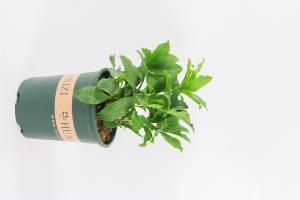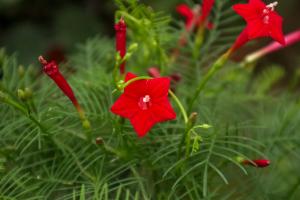Is Tap Water Okay to Use for My Plants?
As a plant owner, you might be wondering whether tap water is safe to use for watering your plants. The answer is not straightforward because it depends on several factors, including your location, the type of plants you own, and the quality of your tap water. Let's delve into this topic in more detail.
The Benefits of Tap Water for Plants
One advantage of using tap water for plants is that it's readily available, affordable, and convenient. In many countries, tap water is treated to remove pathogens and contaminants, making it safe for human consumption. This also means that tap water is suitable for most plants, especially if you live in an urban area with treated water.
Another benefit of tap water is that it contains essential nutrients that plants need, such as minerals like calcium, magnesium, and zinc. These nutrients are necessary for plant growth and development, and they can be found in varying amounts in tap water depending on your location.
The Disadvantages of Tap Water for Plants
While tap water may seem like a reliable option for plant watering, it's not without its drawbacks. One issue with tap water is that it may contain high levels of chlorine or fluoride, which can be harmful to some plants. Chlorine is often added to tap water as a disinfectant, but it can also damage delicate plant tissues, causing leaf burn or stunted growth. Similarly, fluoride can accumulate in plant tissues, causing discoloration and weakening the plant's structure.
Another problem with tap water is that it may be hard or soft, depending on your location. Hard water contains high levels of dissolved minerals like calcium and magnesium, which can build up in soil over time and affect plant growth. Soft water, on the other hand, is low in minerals and may not provide enough nutrients for certain plants. Over time, this can lead to nutrient deficiencies and other problems.
How to Test Your Tap Water for Plant Use
If you're unsure about the quality of your tap water, you can test it to determine its pH level, mineral content, and other parameters. You can purchase a water testing kit from a gardening store or laboratory or have your tap water tested by a professional. This can help you adjust your watering practices or choose a different water source if necessary.
Another way to improve the quality of your tap water for plant use is to let it sit out overnight or for a few days. This can allow chlorine to dissipate from the water and reduce its pH level, making it more suitable for plants. Alternatively, you can use a water filter or water conditioner to remove chlorine, fluoride, or other contaminants from your tap water.
Conclusion
In conclusion, tap water can be a viable option for plant watering, but it's important to consider the quality of your water and the needs of your plants. Some plants may be more sensitive to chlorine, fluoride, or hard water than others, and testing your tap water can help you make informed decisions about your watering routine. With proper care and attention, your plants can thrive with tap water or other sources of water.

 how many times do yo...
how many times do yo... how many planted tre...
how many planted tre... how many pine trees ...
how many pine trees ... how many pecan trees...
how many pecan trees... how many plants comp...
how many plants comp... how many plants can ...
how many plants can ... how many plants and ...
how many plants and ... how many pepper plan...
how many pepper plan...
































